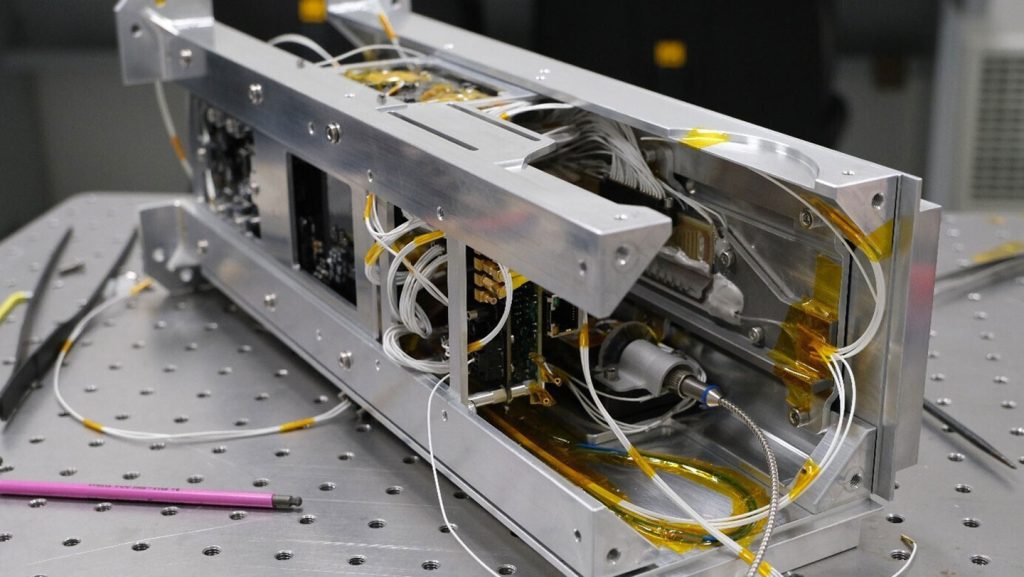Quantum computers have the potential to revolutionize a wide range of industries, from finance to healthcare, by solving complex problems much faster than classical computers. In the realm of space, where precision and speed are paramount, quantum computers could play a significant role in optimizing data networks, improving communication systems, and even testing our understanding of fundamental physics. These vehicles of thought, leveraging the principles of quantum mechanics, could provide shortcuts to finding solutions that classical computers might never achieve, making them invaluable in scenarios where accuracy is crucial.
A quantum computer, unlike its classical counterpart, operates under principles that challenge our intuition. By utilizing superposition and entanglement, quantum systems simultaneously process vast amounts of information. This unique capability could potentially transform how we solve large-scale optimization problems, such as routing data through vast networks. Imagine optimizing the most efficient energy distribution system or securing communications to maintain massive hydrogen fuel cells. A quantum computer could calculate these scenarios at an astronomic scale, vastly outperforming traditional methods.
The potential of quantum computers is further highlighted by their ability to perform probabilistic computations, a feature that mimics human-like creative and intuitive decision-making. Unlike classical computers that rely on logical steps, quantum systems branch out possibilities simultaneously, much like humans consider multiple pathways at once. This ability couldaves us from the roadblocks placed by determinism, allowing us to tackle real-world problems with unprecedented accuracy. For instance, in collaborative problem-solving, such as finding multiple optimal solutions, quantum systems could simultaneously consider and optimize different strategies, harnessing the creativity of humanity.
Quantum computers are essentially the advanced human billions of years of refined thought processes. They complement, rather than supersede, the way human minds work. This synergy allows them to handle intricate systems that were previously intractable for classical computation. Imagine using a quantum computer to test and refine our theoretical models of physics, such as predicting the behavior of particles at the quantum level. These discoveries could open significant new frontiers in research and technology, offering precise insights that classical systems cannot match.
Developing a practical quantum computer is a daunting task, but its potential to transform many sectors of our world is immense. While progress is measured in isolated tests, the real value lies in the fact that these systems continue to demonstrate scientific and engineering excellence on scales that inspire awe and curiosity. For example, in energy systems, a quantum computer could optimize the distribution of solar power, preventing(grid failures) and ensuring reliable power to cities. Similarly, in healthcare, quantum computing might enable more accurate diagnostics and treatments by analyzing vast amounts of data in unprecedented detail.
Despite the challenges of maintaining the quantum bits (qubits) in high precision, which are prone to environmental decoherence, the push for quantum supremacy continues, offering insights even as technology approaches its limits. The potential of quantum computers extends beyond mere computing; they represent the ultimate form of human ingenuity, where science and creativity converge. Imagine a world where every decision, every data exchange, and every problem-solving step is meticulously optimized to minimize risks and enhance efficiency. This collaborative approach, mirrored both in scientific discovery and everyday life, is what quantum computers achieve.
In conclusion, quantum computers, while still in their infancy, hold the potential to fundamentally alter how we view complexity, innovation, and precision. Their applications span from edge computing and decentralized systems to space research and fundamental physics, offering solutions that are both faster, smarter, and more reliable than ever before. As we build these quantum systems, we are also witnessing the rise of a new era of humanity—the era where thought and action are inextricably connected, better than ever.


